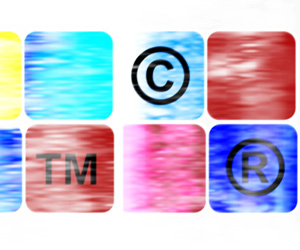Federal Appeals Court Sides With South Park Producers in
Copyright Case
By Joe Forward, Legal Writer,
State Bar of Wisconsin
 June 8, 2012 – South Park, a popular and highly
satirical cartoon for adults, was the subject of a recent opinion by the
U.S. Court of Appeals for the Seventh Circuit,
which decided it was okay for the makers of South Park to
parody a copyrighted video in one of its episodes.
June 8, 2012 – South Park, a popular and highly
satirical cartoon for adults, was the subject of a recent opinion by the
U.S. Court of Appeals for the Seventh Circuit,
which decided it was okay for the makers of South Park to
parody a copyrighted video in one of its episodes.
Milwaukee-based Brownmark Films LLC
holds a copyright on the original version of a video entitled,
“What What (In the Butt),” which features an adult male
singing and dancing in tight pants, according to the federal appeals
court in Brownmark Films LLC v. Comedy Partners, et
al., No. 11-2620, (June 7, 2012).
In a South Park episode called “Canada Goes on
Strike,” elementary school boy characters create a video of the
same name (WWITB), with similar features, to earn
“internet money” that will buy off striking Canadians.
Brownmark Films filed suit in the U.S. District Court for the Eastern District of
Wisconsin, alleging a violation of the Copyright Act of 1976.
South Park Digital Studios (SPDS) asserted a
“fair use” defense. The fair use doctrine allows the use of
copyrighted material without permission in limited circumstances,
including reproduction for criticism and commentary. See 17
U.S.C. §107.
District court Judge J.P. Stadtmueller
granted SPDS’s motion to dismiss based on fair
use, noting that its parody was meant to “lampoon the recent craze
in our society of watching video clips on the internet … of
rather low sophistication and quality.”
Brownmark appealed, arguing that courts are not
allowed to grant motions to dismiss based on affirmative defenses before
discovery. But the three-judge appeals court panel affirmed, electing to
treat SPDS’s motion to dismiss as a motion for
summary judgment.
“Despite Brownmark’s
assertions to the contrary, the only two pieces of evidence needed to
decide the question of fair use in this case are the original version of
WWITB and the episode at issue,” wrote
Judge Richard Cudahy for the panel.
The district court was right to rely solely on those two works, the
appeals panel explained, because the claim was limited to the production
and distribution of a single South Park episode.
The court addressed, but did not decide, whether the
incorporation-by-reference doctrine applies to video. That doctrine
allows defendants to submit documents mentioned in a complaint when
filing a motion to dismiss, even though they are outside the
pleadings.
SPDS had relied on the doctrine when filing its
motion to dismiss, fearing a motion for summary judgment would invite an
expensive discovery request.
“[N]o court of appeals has ruled that the content of television
programs and similar works may be incorporated by reference,”
wrote Judge Cudahy wrote. “And we think it makes
eminently good sense to extend the doctrine to cover such works,
especially in light of technological changes that have occasioned
widespread production of audio-visual works.”
However, the panel did not rule on that issue because the parties did
not brief it. “[W]e reserve the resolution of the question for a
later date,” Judge Cudahy wrote.
The panel upheld SPDS’s defense as an “obvious case
of fair use,” and also ruled that Brownmark waived
the fair use argument when it opted to argue on civil procedure
grounds.
“When the two works in this case are viewed side-by-side, the
South Park episode is clearly a parody of the original WWITB video, providing commentary on the
ridiculousness of the original video and the viral nature of certain
YouTube videos,” Judge Cudahy noted.
“We agree with the district court’s well-reasoned and
delightful opinion.”
